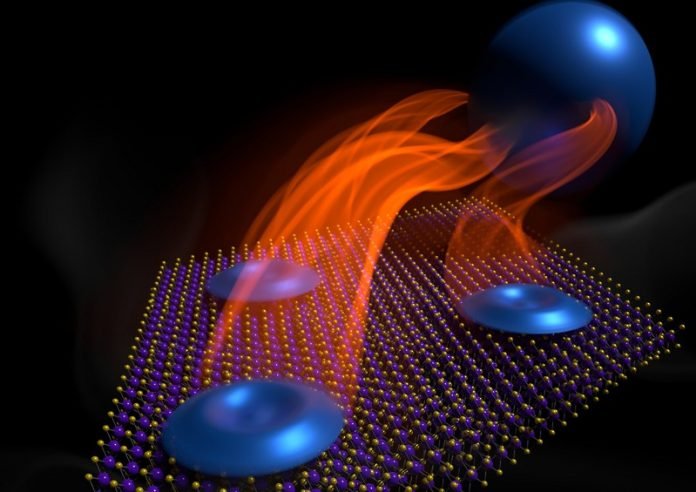
Imagine having a computer so powerful that it’s exponentially faster than anything we’ve got today – from high-tech laboratories’ supercomputers to smartphones in our pockets.
This isn’t science fiction; it’s the exciting promise of quantum computing!
But what’s holding us back from having these super-speedy quantum computers?
The answer lies in building a secure and stable network of something called qubits.
Qubits are like the binary code (zeros and ones) that current computers use, but they’re way more advanced.
The trouble with qubits is that they’re very sensitive and can be messed up by any slight disturbance, like a stray light particle (called a photon). If we could develop qubits that resist these disturbances, it would be a game-changer.
And it looks like scientists from the University of Washington have taken the first steps toward achieving this.
In a couple of studies, these researchers experimented with super-thin semiconductor flakes and found something amazing.
They discovered what they call “fractional quantum anomalous Hall” (FQAH) states. Think of it as a super-special condition that certain materials can be in.
This is a big deal because these FQAH states can produce some weird “quasiparticles” called anyons.
Anyons are kind of like fractions of an electron’s charge. Some types of these anyons can be used to make qubits that resist disturbances, which would make them super stable.
The team managed to create these FQAH states by arranging two ultra-thin flakes of a material called molybdenum ditelluride in a particular way.
When they cooled it down to almost absolute zero, the system became magnetic on its own. With this, they could detect the FQAH effect, which is a significant step towards harnessing the power of anyons for quantum computing.
The researchers hope to use their system to learn more about these anyons, which act very differently from regular particles like electrons. Specifically, they want to explore something called “non-Abelian” anyons, which could be used as these disturbance-resistant qubits.
The best part about these non-Abelian anyons is that when you twist them around each other, they can create an intertwined quantum state.
In this state, the information is scattered over the entire system, making it hard for disturbances to mess things up.
Three essential properties allowed these FQAH states to form in the experiment: Magnetism (created spontaneously when they loaded the system with positive charges), topology (the electrical charges in their system twisted like a Möbius strip), and interactions (the charges interacted enough to stabilize the FQAH state).
These findings are incredibly encouraging. The team is hopeful that their research could lead to discovering more about these unique anyons and their potential uses.
Who knows, this might just be the push we need to fast-track our journey to quantum computing!
The studies were published in Science and Nature.


